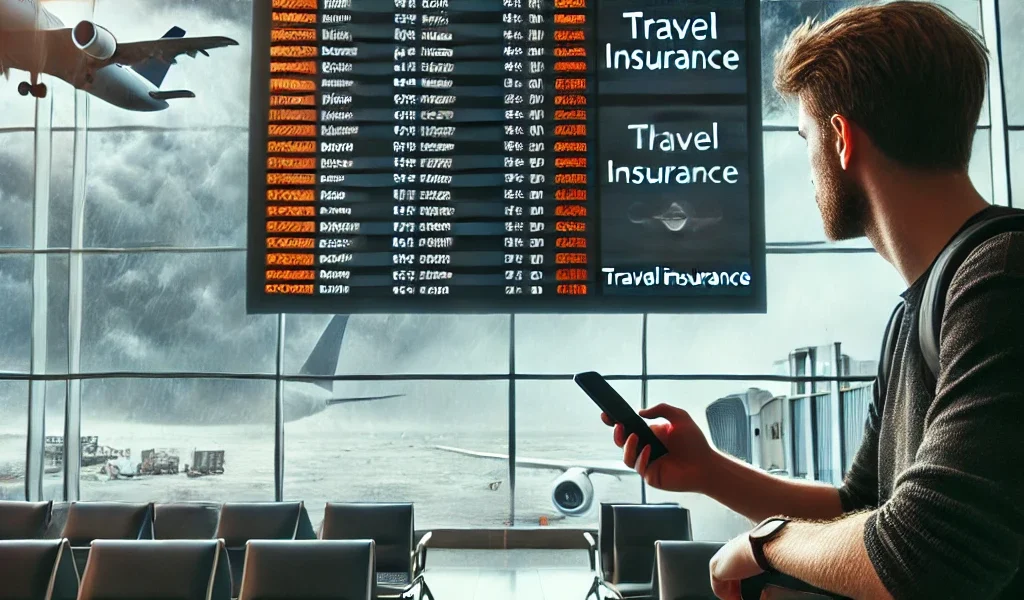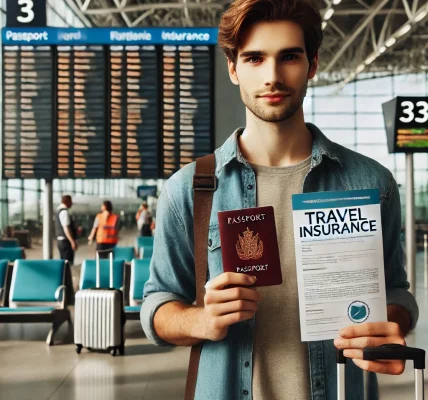Introduction
Traveling can be unpredictable, especially when natural disasters or severe weather conditions strike unexpectedly. Hurricanes, blizzards, earthquakes, or even heavy storms can disrupt travel plans, causing flight cancellations, trip delays, or unexpected evacuations. This raises an important question: Does travel insurance cover natural disasters and weather-related delays?
The answer depends on the type of travel insurance policy you purchase, the coverage it includes, and the specific circumstances of your travel disruption. In this guide, we’ll explore how travel insurance works in these situations, what is covered, and how to ensure you get the best protection.
How Travel Insurance Covers Natural Disasters and Weather Delays
Most standard travel insurance policies provide coverage for certain weather-related disruptions, but the extent of coverage depends on the insurer and policy type. Here are key areas where travel insurance may help:
1. Trip Cancellation Coverage
If a natural disaster or severe weather event prevents you from traveling, trip cancellation coverage may reimburse your prepaid, non-refundable travel expenses. However, coverage is typically valid only if:
- The natural disaster occurs after you purchased the policy.
- The destination is uninhabitable or under a government-ordered evacuation.
- Your airline or cruise line cancels services due to the disaster.
🛑 Not Covered: If you decide to cancel your trip due to fear of a potential storm or disaster, most standard policies won’t cover it unless you have “Cancel For Any Reason” (CFAR) insurance.
2. Trip Interruption Coverage
If you’re already on your trip and a natural disaster forces you to leave early, trip interruption coverage may reimburse you for the unused portion of your trip and cover additional transportation expenses to return home.
- Example: If a hurricane damages your resort mid-trip and you have to evacuate, the policy may cover unused nights and new flight bookings.
- Example: If an earthquake occurs in your travel destination, leading to emergency evacuations, your insurance might help cover unexpected lodging and transportation costs.
3. Travel Delay Coverage
If your flight is delayed due to extreme weather, travel delay coverage may reimburse reasonable expenses for accommodation, meals, and necessities while you wait.
- Example: A snowstorm causes your flight to be delayed overnight, and you need to book a hotel room. Your travel insurance may cover the cost.
Important Considerations:
- Policies usually have a minimum delay period (e.g., 6-12 hours) before coverage applies.
- Some policies cover expenses only if the delay is due to an airline-issued weather cancellation.
4. Missed Connection Coverage
If a weather delay causes you to miss a connecting flight, cruise, or tour, some travel insurance plans offer missed connection coverage to help you catch up with your trip.
- Example: Your first flight is delayed due to a thunderstorm, causing you to miss your cruise departure. Travel insurance may cover additional travel costs to meet your cruise at the next port.
5. Emergency Evacuation & Medical Coverage
Natural disasters can pose serious risks to travelers. If you are injured during an earthquake, hurricane, or other extreme weather event, emergency medical coverage can help cover hospital bills, emergency transportation, and medical evacuation.
- Example: A volcanic eruption disrupts flights, and you need emergency medical evacuation. Travel insurance may cover the cost of being transported to a safer location or home.
What’s Not Covered?
While travel insurance provides significant protection, there are some exclusions:
❌ Pre-existing Weather Events: If a hurricane, storm, or disaster is already named and forecasted before you buy travel insurance, it may not be covered. Buying insurance early is key!
❌ Trip Cancellations Due to Fear: If you cancel your trip because you’re afraid of a potential storm or disaster, you won’t be covered unless you have CFAR (Cancel for Any Reason) insurance.
❌ Government Travel Warnings: If your destination is under a government travel warning (e.g., hurricane-prone areas), some policies may exclude coverage.
❌ Delays Below the Minimum Timeframe: If your travel delay is shorter than the policy’s minimum coverage requirement (e.g., 6-12 hours), you won’t be reimbursed.
How to Ensure Maximum Protection from Natural Disasters & Weather Delays
To avoid financial losses and ensure smooth travel, consider these tips:
✅ 1. Buy Travel Insurance Early
Purchase travel insurance before a natural disaster or storm is named. Once a hurricane is officially named, you cannot claim for related cancellations.
✅ 2. Opt for “Cancel for Any Reason” (CFAR) Coverage
If you want flexibility to cancel your trip for any reason, CFAR insurance allows cancellation for any reason (including fear of a storm) and reimburses up to 50-75% of non-refundable costs.
✅ 3. Check Your Policy’s Coverage Details
Not all policies cover weather-related disruptions equally. Read the fine print and check:
- Minimum delay periods for travel delay claims.
- Whether your accommodation needs to be “uninhabitable” for coverage.
- The deadline to file claims.
✅ 4. Keep All Receipts and Documentation
If you need to file a claim, you’ll likely need:
- Airline cancellation notices.
- Hotel evacuation orders.
- Weather reports showing the disaster’s impact.
- Expense receipts for meals, lodging, and rebooked flights.
✅ 5. Choose an Insurance Provider with 24/7 Assistance
Some insurers offer 24/7 emergency assistance, which can help you rebook flights, find alternative accommodations, and guide you through evacuations in disaster situations.
Conclusion
Natural disasters and extreme weather conditions can disrupt travel plans in unexpected ways. Fortunately, travel insurance can provide valuable protection for trip cancellations, delays, missed connections, and emergency evacuations. However, coverage depends on your policy’s terms and when you purchase insurance.
To maximize protection:
✔️ Buy insurance before a storm or disaster is named.
✔️ Consider CFAR coverage if you want more flexibility.
✔️ Keep documentation for a hassle-free claims process.
With the right travel insurance plan, you can enjoy peace of mind knowing that you’re financially protected, no matter what nature throws your way!




